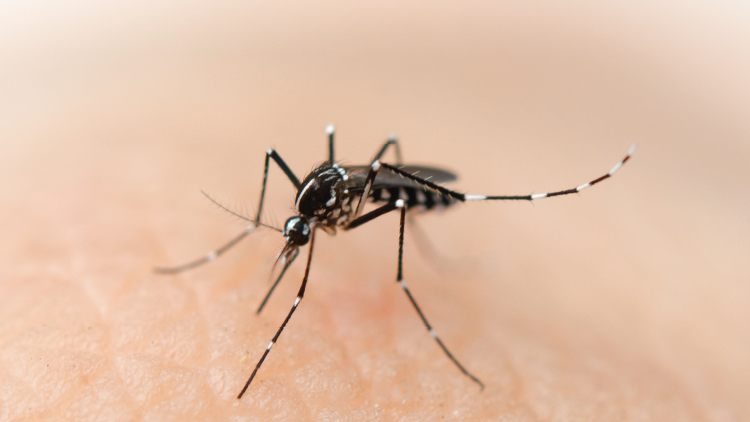Don’t Be Bugged! Be Prepared!
Your family has probably spent much time outside lately. Perhaps you have been examining and learning about a variety of bugs. Most are harmless, but some insect bites can cause pain, itchiness and transmit disease.
- Certain types of mosquitoes can pass on West Nile Virus after biting an infected animal or bird.
- Blacklegged ticks (deer ticks) can transmit Lyme Disease after feeding on infected small animals or birds.
Mosquitoes:
- Mosquitoes are most active at the beginning and end of day (sunrise and sunset). Minimize your time outdoors at those times.
- Wear loose-fitting, long pants, long-sleeved shirts, shoes and socks. Tuck pant legs into your socks for extra protection. Choose light colours which are less attractive to insects. Consider using mosquito netting.
- Dump standing water regularly that collects in toys, empty flowerpots, construction materials, etc. If you leave out water for birds or pets, change it a few times a week. Mosquitoes lay their eggs in stagnant water.
- Clean up debris under trees, plants and bushes on your property, as well as keeping them trimmed to decrease the places where adult mosquitoes hide.
- Ensure window and door screens are in good repair.
Ticks:
- Ticks are most likely to be found along trails, in long grass and the woods.
- After outdoor walks, check everyone, including pets, for ticks, especially the groin, scalp and armpit areas.
- Bathe or shower within two hours of being outside.
If you find a tick, remove it using the method found here: healthunit.com/lyme-prevention-personal-protection. Removal within 24 hours stops Lyme disease from being transmitted.
- To submit a tick for identification, go to: etick.ca
Find out what insect repellents have been approved for use in Canada because they are safe and effective.
- Do not use insect repellent on a child younger than 6 months of age. Use mosquito netting over a stroller and supervise for safety.
- Know what products to use for what age groups and how often to safely re-apply.
- Avoid eyes, mouth and hands.
- Wash hands and exposed skin well after being outside.
Want to know more? https://www.healthunit.com/vector-borne-diseases
Heather Bywaters RN PHN
Middlesex-London Health Unit
For the Middlesex-London Community Early Years Partnership














